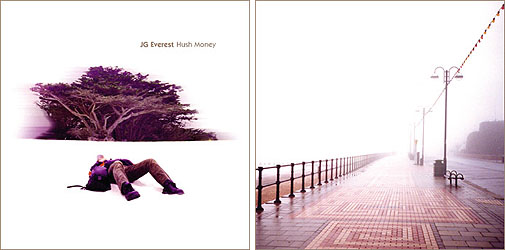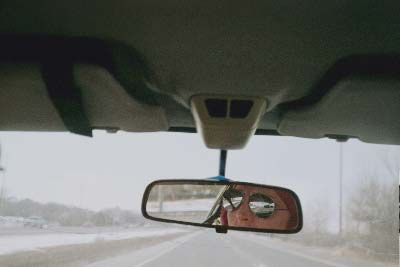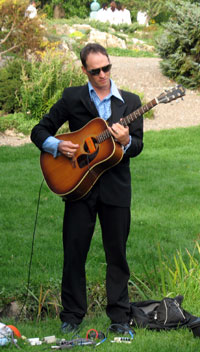![]()
“Hush Money is full of ambient, down-beat but often sweet guitar-pop à la Elliott Smith, with the arty sonic flourishes that Lateduster fans would expect” – Minneapolis StarTribune
“a painstakingly lush collection of songs layered with guitar and keyboard loops, sweeping synth and effects-pedal washes, and pretty, breathy faux-naive vocals. ”
– Chicago Reader“On his solo effort, Everest explores loss, jealousy, and regret with a gentle thoughtfulness that shines through on his introspective songs. With background help from Martin Dosh, Andrew Broder, Tim Glenn (FOG), and Ryan Lovan (ROMA DI LUNA), Everest proves he’s not just a strong bandmate, but also a gifted singer/songwriter.” – St Paul Pioneer Press
After years leading bands Lateduster, The Sensational Joint Chiefs, Fresh Squeez and the Dijonettes, JG Everest released his first solo record Hush Money in 2004, featuring special guest musicians Andrew Broder (FOG), Michael Lewis (Bon Iver, Alpha Consumer), and Tim Glenn (FOG) as well as his sister, Mary. Mostly self-recorded in his attic bedroom in south Minneapolis, and mixed with Ben Durrant at Crazy Beast Studio, Hush Money is a lo-fi collection of intimate confessional songs with quirky edges and atmospheric, layered textures. Performed live with real-time looping pedals and a variety of instruments, but primarily steel string acoustic guitar.
HowWasTheShow.com (Live Review): 2007
“Everest started off the evening with an acoustic guitar strapped around his body, but so much more was in store than just the strum of those six strings. You see, his band was beneath his feet. His pedals looped the percussion of his hand against the strings, the gentle picking of a melody, a bow scraped across the strings and then the strumming of chords. How many different sounds can you get from one hollow-bodied instrument? Add to that maelstrom the sharp ring of the glockenspiel, a trumpet’s wail and the screams and faux beat-box looped from James’s mouth. Then came the gritty vocals winding their way through the sound. His sister Mary added some piano and there were two violinists seated in front of the stage. This was like the lo-fi bedroom experimentation of a musician with a new eight-track recorder—adding layer after layer to a simple song. As the song went along and loops were added and deleted, it became impossible to tell what sound was coming from where. Where are those timid squeals of feedback coming from? Is that a violin, a piano or an electronic oboe? Do I hear tap dancing? Is this really happening? The sound was looping, building and swelling to its climax, then suddenly, with a couple taps of his feet, JG Everest’s melodious cacophony came to a halt with barely an echo left hanging in the air…”









